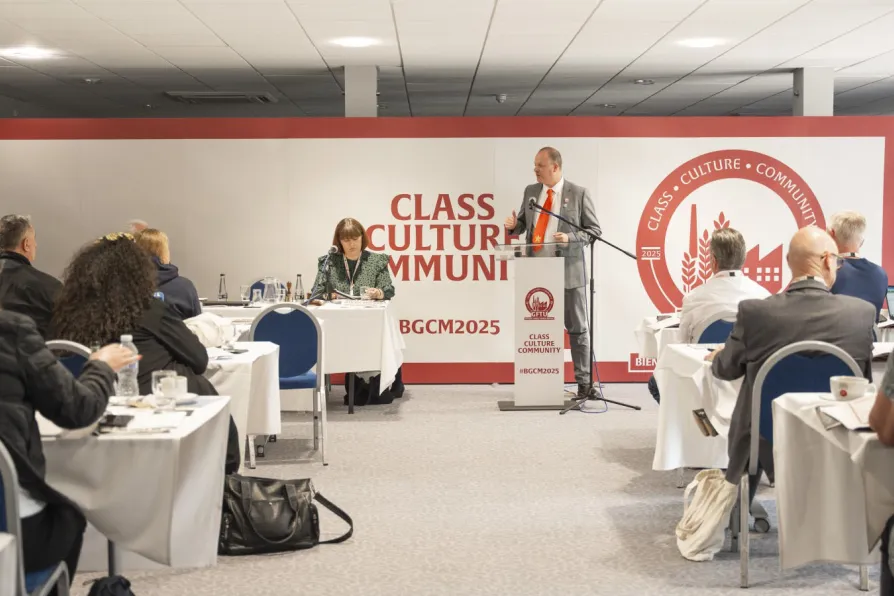
 GFTU general secretary Gawain Little. Photo: Khatun & Will Killington
GFTU general secretary Gawain Little. Photo: Khatun & Will Killington
GENERAL Federation of Trade Unions (GFTU) general secretary Gawain Little called for a union-led “politics of mass mobilisation” today to deliver real change for Britain.
In his address to the GFTU biennial conference, Mr Little highlighted the “class, culture, community” theme, calling for the movement to “combine our workplace struggles with a massive movement for change that links unions, community organisations and progressive campaigns.”
He highlighted the GFTU’s successful rollout of a growing range of trade union education courses.
“Together we have educated over two-and-a-half thousand trade union activists, new and more experienced, and strengthened our movement immeasurably.
“We’ve launched campaigns that have played a role in shifting government policy and have supported thousands of workers in dispute with their employer, often to successful conclusion.”
But Mr Little stressed the need to recognise the scale of working-class anger and the need for radical solutions to reverse the rise of Reform UK.
“I don’t believe that thousands of people overnight suddenly became sympathisers of the racist far right, but rather that there’s a deep-seated anger in our communities and the far right prey on that anger to spread their poisonous views.”
That anger was a natural consequence of “declining wages, increasing bills, lack of access to public services and precarious, casualised work with few if any employment rights. It follows 45 years of privatisation of public services, destruction of public housing and the sell-off of community spaces, which can be summed up as an attempt to prove Margaret Thatcher’s statement that there is no such thing as society.”
If the left was to convince workers it was a real alternative it needed to fight for services and oppose the lurch “towards militarism and a drive to war” that was taking resources away from socially useful spending.
But it also needed a way to combine “industrial, political and cultural struggle to take our country back,” “rebuilding progressive working-class culture… through our music and song, our poetry, our visual arts.”
Uniting different fronts of the struggle was a reason the conference had voted to accept affiliation by community organisations, which opened up new avenues for rebuilding labour movement culture in communities, he said.

Head of education, campaigns and organising for the General Federation of Trade Unions HENRY FOWLER explains why it is launching a fund to support trades councils and give them access to a new range of courses and resources












